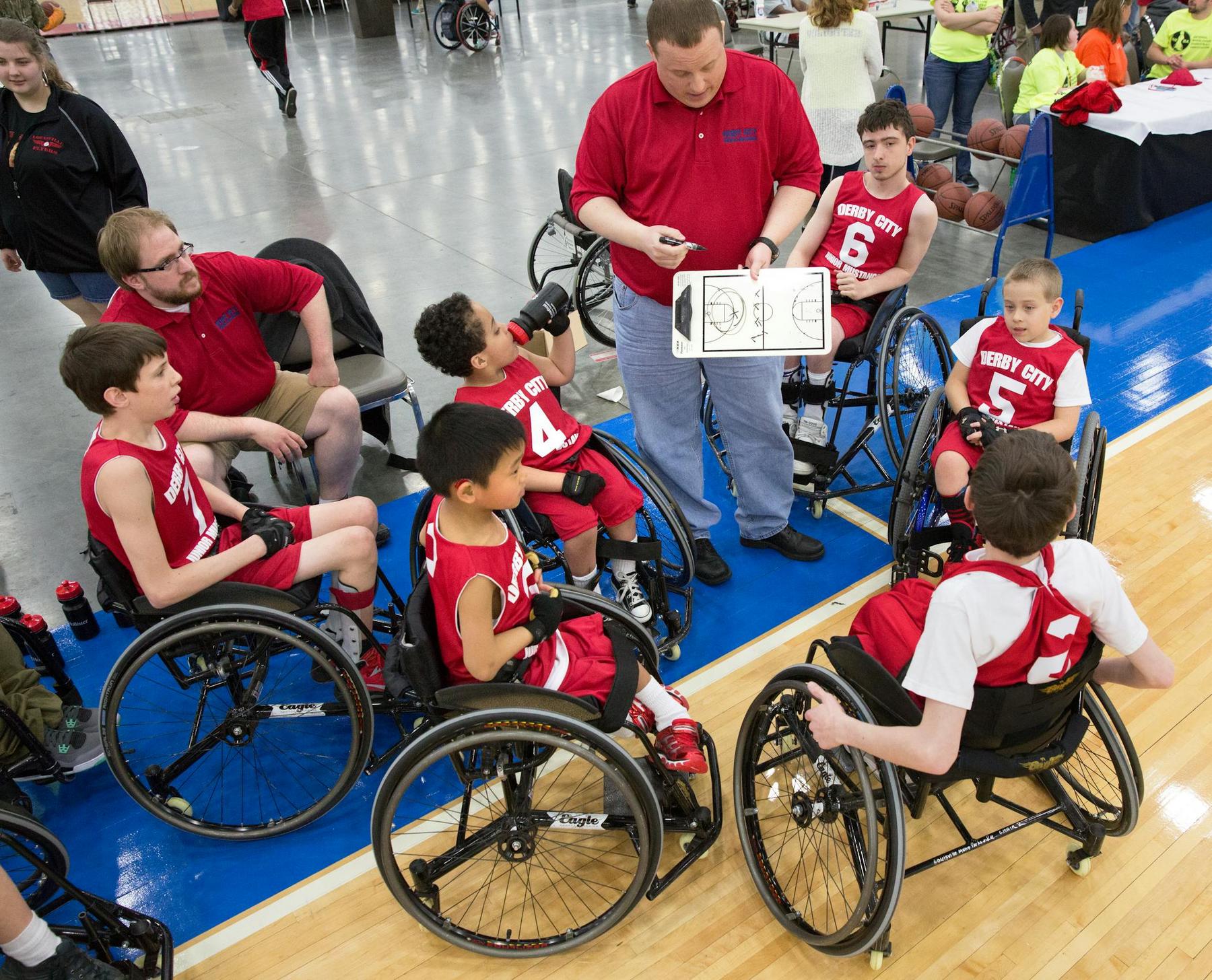In the vibrant community of Cairns, disability support is more than a service—it’s a lifeline that transforms daily challenges into opportunities for growth and independence. At the heart of effective support lies not just technical expertise, but genuine compassion that recognises the whole person beyond their disability. The quality of care received profoundly impacts not only physical wellbeing but emotional resilience, social connections, and quality of life for individuals navigating disability.
For both support workers and organisations like Advanced Disability Management, cultivating a team with the right blend of compassion and competence isn’t merely aspirational—it’s essential for delivering support that truly empowers. As we explore the qualities that define exceptional disability support, we’ll uncover how compassionate teams become catalysts for independence, dignity, and meaningful community participation.
What Makes Compassion Essential in Disability Support?
Compassion in disability support extends far beyond simple kindness. It encompasses a deep understanding of individual experiences, recognition of unique strengths, and unwavering respect for personal autonomy. When support teams approach their work with genuine compassion, they create environments where clients feel seen, valued, and empowered.
True compassionate care is built upon three core principles that transform standard support into exceptional care:
- Person-Centred Autonomy: Rather than imposing predetermined solutions, compassionate teams actively involve clients in decision-making processes. This approach ensures that support aligns with personal goals and preferences, whether in supported independent living arrangements or community participation activities.
- Emotional Validation: Support workers trained in Active Listening techniques help reduce feelings of isolation among clients. By acknowledging emotional experiences without judgment, compassionate carers build trust and create safe spaces for authentic expression.
- Cultural Safety: In Cairns, where 8.7% of the population identifies as Aboriginal or Torres Strait Islander, culturally competent care becomes non-negotiable. This includes respecting kinship protocols, understanding cultural perspectives on disability, and integrating traditional practices where appropriate.
Compassion serves as the bridge between clinical competence and human connection, transforming routine care into relationships that nurture confidence, self-determination, and personal growth.
Which Core Qualities Define Exceptional Disability Support Workers?
The most effective disability support workers combine technical knowledge with interpersonal excellence. Years of industry experience and research reveal six fundamental qualities that distinguish exceptional support professionals:
Empathetic Communication Skills
Communication forms the foundation of meaningful support relationships. Outstanding disability support workers master:
- Active Listening: The ability to be fully present without interruption or judgment, using verbal and non-verbal cues to demonstrate understanding
- Augmentative Communication Proficiency: Comfort with assistive technologies and alternative communication methods ensures all clients retain agency regardless of communication barriers
- Nonverbal Cue Recognition: Understanding that over 65% of emotional content is conveyed through body language, skilled support workers develop expertise in interpreting subtle expressions of discomfort, confusion, or satisfaction
Adaptive Problem-Solving
Queensland’s unique environment and diverse client needs demand creative thinking. Exceptional support workers demonstrate:
- Environmental Creativity: Finding innovative ways to adapt activities and environments to maximise independence
- NDIS Navigation Expertise: Interpreting complex scheme guidelines to ensure clients access all entitled supports
- Flexibility in Approach: Recognising that strategies effective one day may need modification the next based on changing client circumstances
Cultural Competence and Respect for Diversity
Cairns’ multicultural community requires support workers who:
- Appreciate Cultural Nuances: Understanding how cultural background influences perceptions of disability, care preferences, and communication styles
- Practise Cultural Humility: Approaching differences with curiosity rather than assumptions
- Adapt Support Approaches: Modifying care techniques to honour cultural preferences, particularly during personal care activities
Patient Persistence
Quality support often involves:
- Celebrating Incremental Progress: Recognising that small achievements represent significant victories
- Maintaining Calm During Challenges: Staying composed during difficult moments without transferring stress to clients
- Consistent Encouragement: Providing steady motivation without creating pressure
Boundary Awareness
Effective support workers:
- Balance Compassion with Professionalism: Building warm relationships while maintaining appropriate boundaries
- Recognise Personal Limits: Understanding when to seek additional support or resources
- Respect Privacy and Dignity: Upholding confidentiality and personal boundaries in all interactions
Continuous Learning Mindset
Outstanding support workers:
- Pursue Ongoing Education: Staying current with best practices and emerging research
- Seek Feedback: Welcoming input from clients and colleagues to refine approaches
- Share Knowledge: Contributing to team learning while remaining open to new perspectives
How Can Organisations Foster Empathy in Support Teams?
Creating and maintaining compassionate teams requires intentional organisational strategies. Successful disability support providers implement systematic approaches to cultivate empathy at every level:
Values-Based Recruitment
The foundation of compassionate teams begins with recruitment practices that prioritise character alongside credentials:
- Utilising behavioural interviews that assess empathy, cultural awareness, and stress management
- Involving current clients in the interview process where appropriate
- Looking beyond technical qualifications to identify candidates with genuine passion for empowering others
Comprehensive Training Programs
Effective training extends beyond procedural knowledge to develop emotional intelligence:
- Implementing micro-credentialing on topics like trauma-informed care and assistive technology
- Providing regular simulation exercises that develop perspective-taking abilities
- Creating peer mentoring opportunities that pair new staff with experienced workers
Organisational Support Systems
Sustaining compassion requires systems that prevent burnout and promote wellbeing:
- Establishing compassion resilience programs through monthly workshops on emotional boundary-setting
- Creating regular reflection spaces where teams can process challenging experiences
- Developing recognition programs that celebrate examples of exceptional compassionate care
Why Is Cultural Competence Critical in Disability Support?
In Cairns, where diverse cultural backgrounds shape community experiences, cultural competence becomes a critical component of quality support. Cultural awareness transforms service delivery in profound ways:
Enhanced Trust and Communication
Cultural competence creates foundations for authentic relationships:
- Understanding cultural communication styles prevents misinterpretations
- Recognising and respecting cultural protocols builds trust with clients and families
- Incorporating cultural preferences into care plans demonstrates respect
Improved Client Engagement
Research demonstrates that culturally responsive services achieve significantly better engagement:
- Employing Indigenous liaison officers improves engagement with First Nations clients by 67%
- Culturally appropriate activities increase participation rates and satisfaction
- Recognising important cultural events and celebrations fosters belonging
Better Health Outcomes
Cultural understanding directly impacts wellbeing:
- Integrating traditional healing practices where appropriate complements conventional approaches
- Addressing cultural barriers to healthcare access improves preventative care
- Culturally informed mental health support acknowledges different ways of understanding wellbeing
What Challenges Do Compassionate Teams Face?
Despite commitment to compassionate care, disability support teams navigate significant challenges that require acknowledgment and strategic responses:
Workforce Sustainability Issues
The disability sector faces ongoing workforce pressures:
- Queensland’s disability sector experiences 23% annual staff turnover, driven by emotional burnout
- Only 38% of support workers hold formal qualifications beyond Certificate III
- Cairns’ geographic sprawl necessitates 22% longer travel times compared to metropolitan providers
Systemic Barriers
External factors often complicate care delivery:
- NDIS plan inconsistencies can create funding uncertainties
- Regional infrastructure limitations impact service accessibility
- Mainstream training programs sometimes overlook cultural considerations important to diverse communities
Compassion Fatigue
The emotional nature of disability support creates vulnerability to compassion fatigue:
- Continuous empathetic engagement without adequate support can lead to emotional exhaustion
- Vicarious trauma may develop when supporting clients through difficult experiences
- Personal-professional boundary challenges emerge in close support relationships
How Does Team Compassion Impact Client Outcomes?
The evidence clearly demonstrates that compassionate support delivers transformative outcomes across multiple dimensions:
| Outcome Area | Impact of Compassionate Teams | Contributing Factors |
|---|---|---|
| Health & Wellbeing | 78% reduction in hospitalizations | Consistent, empathetic support; early intervention; preventative focus |
| Social Connection | 3.2x higher community engagement | Confidence building; social skills development; community integration support |
| Independence | Significant increases in daily living skills | Person-centered goal setting; celebrating incremental progress; adaptive approaches |
| Economic Participation | 19% employment rate increase | Skill-building initiatives; employer education; ongoing workplace support |
| Family Wellbeing | Reduced caregiver stress | Open communication; partnership approach; respite support |
These outcomes represent more than statistics—they reflect transformed lives, expanded opportunities, and communities enriched by the full participation of all members.
Building and Sustaining Compassionate Support Teams
Creating truly compassionate disability support teams requires ongoing commitment to key strategies:
Recruit for Character, Train for Skills
While technical knowledge matters, the most successful teams prioritise:
- Emotional intelligence and interpersonal skills
- Genuine belief in the capacity and worth of all people
- Natural problem-solvers with adaptable mindsets
Invest in Continuous Development
Excellence in support requires ongoing growth through:
- Regular reflective practice opportunities
- Exposure to diverse perspectives and approaches
- Skills development targeted to client needs and goals
Create Supportive Team Environments
Compassionate care flourishes when teams experience:
- Regular supervision and emotional support
- Recognition of exceptional compassionate practice
- Balanced workloads that prevent burnout
Center Client Voice and Choice
True compassion means ensuring:
- Support plans reflect individual preferences and goals
- Regular feedback mechanisms capture client perspectives
- Decision-making processes maximise client autonomy
Conclusion: The Compassion Difference
Building compassionate disability support teams represents more than an organisational goal—it’s a commitment to transforming lives through human connection. When support moves beyond tasks to genuine relationship, clients experience not just assistance but true empowerment.
For individuals navigating disability in Cairns and beyond, compassionate support becomes the bridge to fuller community participation, expanded personal capabilities, and lives defined by possibilities rather than limitations. The qualities that define exceptional support teams—empathy, adaptability, cultural awareness, patience, boundary consciousness, and continuous learning—create environments where dignity, choice, and personal growth flourish.
As we continue advancing disability support practices, compassion remains both our foundation and our horizon—the essential quality that transforms service delivery into life-changing partnerships built on mutual respect and shared humanity.
What qualifications should high-quality disability support workers have?
While formal qualifications like Certificate III or IV in Individual Support provide important foundations, exceptional disability support workers combine technical knowledge with essential personal qualities. These include empathetic communication skills, adaptive problem-solving abilities, cultural competence, patience, maintaining professional boundaries, and a commitment to ongoing learning. Advanced Disability Management prioritises these qualities alongside relevant qualifications when building support teams that deliver compassionate, person-centered care.
How can disability support organisations reduce staff turnover?
Effective organisations address turnover through comprehensive strategies including values-based recruitment, emotional resilience training, regular supervision, recognition programs, professional development opportunities, and manageable workloads. Research shows that organisations implementing compassion resilience programs experience significantly lower burnout rates. By creating supportive team environments where staff feel valued and supported, disability service providers can maintain consistent teams that build meaningful relationships with clients.
Why is cultural awareness so important in disability support services?
Cultural awareness is critical because an individual’s cultural background significantly influences how they experience disability, interact with support systems, and communicate their needs. In Cairns, where 8.7% of the population identifies as Aboriginal or Torres Strait Islander, culturally competent care improves engagement substantially. Recognising and respecting cultural protocols, communication styles, and personal care preferences builds trust, improves service acceptance, and contributes to better overall outcomes.
How does compassionate disability support impact client independence?
Compassionate support enhances independence by balancing assistance with autonomy. Skilled support workers identify opportunities to build client capabilities without creating dependency. By adapting environments, employing assistive technologies, and focusing on individual strengths and preferences, compassionate teams foster confidence, problem-solving, and self-determination that translate into greater independence in daily living.
What role does communication play in quality disability support?
Communication is foundational to exceptional disability support. It not only involves clear verbal exchanges but also encompasses active listening, proficiency with augmentative communication methods, non-verbal cue recognition, cultural sensitivity, and emotional intelligence. Effective communication ensures that clients remain in control of their support processes while building trust and fostering meaningful relationships.



